Related Research Articles
In general, bootstrapping usually refers to a self-starting process that is supposed to continue or grow without external input.
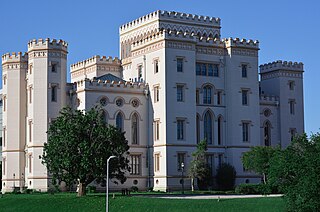
Baton Rouge is the capital city of the U.S. state of Louisiana. Located on the eastern bank of the Mississippi River, it had a population of 227,470 as of 2020; it is the seat of Louisiana's most populous parish (county-equivalent), East Baton Rouge Parish, and the center of Louisiana's second-largest metropolitan area, Greater Baton Rouge.
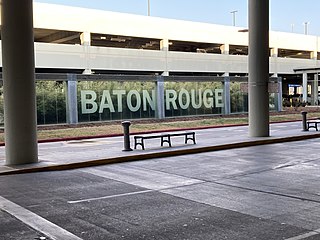
Baton Rouge Metropolitan Airport, also known as Ryan Field, is a public use airport located four miles (7 km) north of the central business district of Baton Rouge, a city in East Baton Rouge Parish, Louisiana, United States.
A sustainable business, or a green business, is an enterprise that has a minimal negative impact or potentially a positive effect on the global or local environment, community, society, or economy—a business that strives to meet the triple bottom line. They cluster under different groupings and the whole is sometimes referred to as "green capitalism." Often, sustainable businesses have progressive environmental and human rights policies. In general, a business is described as green if it matches the following four criteria:
- It incorporates principles of sustainability into each of its business decisions.
- It supplies environmentally friendly products or services that replace demand for nongreen products and/or services.
- It is greener than traditional competition.
- It has made an enduring commitment to environmental principles in its business operations.

WVLA-TV is a television station in Baton Rouge, Louisiana, United States, affiliated with NBC. It is owned by White Knight Broadcasting, which maintains joint sales and shared services agreements (JSA/SSA) with Nexstar Media Group, owner of Fox affiliate WGMB-TV, CW owned-and-operated station WBRL-CD and independent station KZUP-CD, for the provision of certain services. The stations share studios on Perkins Road in Baton Rouge, while WVLA-TV's transmitter is located near Addis, Louisiana.

WBRL-CD is a low-power, Class A television station in Baton Rouge, Louisiana, United States, serving as the local outlet for The CW Television Network. It is owned and operated by network majority owner Nexstar Media Group alongside Fox affiliate WGMB-TV and independent station KZUP-CD ; Nexstar also provides certain services to NBC affiliate WVLA-TV under joint sales and shared services agreements (JSA/SSA) with White Knight Broadcasting. The stations share studios on Perkins Road in Baton Rouge, while WBRL-CD's transmitter is located near Addis, Louisiana.

Formosa Plastics Corporation is a Taiwanese plastics company based in Taiwan that primarily produces polyvinyl chloride (PVC) resins and other intermediate plastic products. It is the corporation around which influential businessman Wang Yung-ching formed the Formosa Plastics Group, and it remains central to the Group's petrochemical operations. The president of Formosa Plastics Corp. (FPC) is Jason Lin (林健男).
Charles R. Bush III is a filmmaker primarily known for co-starring with Kevin Costner in the 1985 film Fandango. In recent years Bush has become known as an entertainment entrepreneur, expanding his business holdings to film and television companies, a record label and a video game development studios.

A green company, also known as an environmentally friendly or sustainable business, is an organization that conducts itself in a way that minimizes harm to the environment. Examples of these actions may include the conservation of natural resources, efforts to reduce carbon emissions, a reduction of waste creation, and support of ecological conservation. Green companies often implement environmentally responsible practices across their entire value chain, from sourcing raw materials to manufacturing processes and distribution.
EWS may refer to:
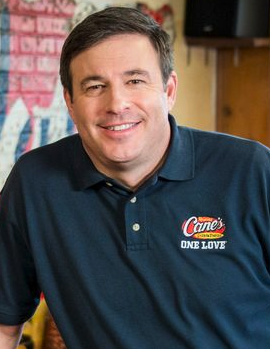
Todd Graves is an American entrepreneur and founder of Raising Cane's Chicken Fingers, a fast food restaurant specializing in fried chicken finger meals.
Louisiana Radio Network (LRN) is a state radio network based in Baton Rouge, Louisiana, that produces news, sports, business and agricultural news programming distributed via satellite to 62 affiliates throughout Louisiana and parts of Mississippi. LRN is a sponsor of the annual Louisiana Agriculture Hall of Distinction and publishes Tiger Rag Magazine, which focuses on Louisiana State University sports.

James R. Engster is a journalist and host of "Talk Louisiana" on WRKF, the National Public Radio affiliate in Baton Rouge.
Darwyn Williams, is an American businessman, the President and CEO for Environmental Waste Solutions since 1994. After working in the real estate industry, Williams started Environmental Waste Solutions with the goal of helping businesses go green. Today, he is responsible for affiliate training, expansion behind North America, and joint ventures with EWS affiliates for larger businesses with more complex recycling requirements.
The Louisiana Business & Technology Center (LBTC) at Louisiana State University plays an important role to the state's flagship university, Louisiana State University as a part of LSU's Office of Research and Economic Development. LBTC's primary goal is to increase the economic growth of Louisiana by enhancing the development of small businesses and assisting in the development of new businesses. The center is ranked among the top ten entrepreneur programs in the nation. In 1988 it was jointly funded through LSU and the Greater Baton Rouge Chamber of Commerce to foster economic growth in Louisiana by providing businesses with applications and tools necessary for growth and survival in the real world. It comprises the Louisiana Technology Transfer Office (LTTO), the LBTC Business Incubator, and the LSU Student Incubator.
McCastle v. Rollins is a case that was filed on behalf of the residents of Alsen, Louisiana against Rollins Environmental Services, Inc., and. Although the decision in this case allowed the plaintiffs within this community to be certified as a class, and allowed them to be viewed as a unit when filing their lawsuit, and thereby reversing the decision that had been made at the trial and appellate level, the case was not reheard in the lower courts. Instead, Rollins Environmental Services, Inc. settled with the plaintiffs outside of court in 1987. Although this case is primarily cited for what a group of people need to do in order to obtain class certification, it is also often cited as one of the pivotal moments in the Environmental justice grass roots movement that has been occurring within communities of color. The people involved in the suit look at the way in which their community was disproportionately impacted by toxic waste polluters in light of their race and class, in comparison to communities that are composed of people who are racially and economically privileged and advocated for more considerate treatment by state regulators and operators of waste disposal plants. Through looking at the development of the McCastle v. Rollins lawsuit, one can see the way in which class, race, legal claims, community activism, public health and environmentalism can be viewed and used in conjunction with one another to protect the rights of people living within a given community.
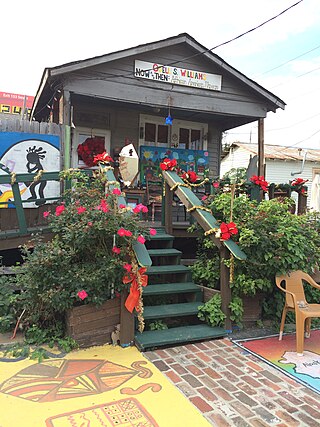
The Odell S. Williams Now And Then African-American History Museum or the Baton Rouge African-American Museum, is a non-profit museum of African-American history and heritage located in Baton Rouge, Louisiana, United States. The museum is named for Odell S. Williams, an educator in Baton Rouge, Louisiana. Founded by Sadie Roberts-Joseph in 2001, the museum remains the only museum dedicated to African and African American history in the city. The museum celebrates Juneteenth, Black History Month, and American history year round.
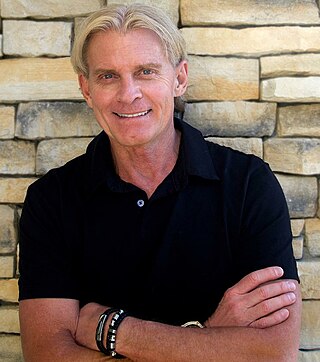
Matthew E. May is an American author and business strategist. He is best known for his six books: The Elegant Solution, In Pursuit of Elegance, The Shibumi Strategy, The Laws of Subtraction, Winning the Brain Game, and What a Unicorn Knows: How Leading Entrepreneurs Use Lean Principles to Drive Sustainable Growth.
Ecopreneurship is a term coined to represent the process of principles of entrepreneurship being applied to create businesses that solve environmental problems or operate sustainably. The term began to be widely used in the 1990s, and it is otherwise referred to as "environmental entrepreneurship." In the book Merging Economic and Environmental Concerns Through Ecopreneurship, written by Gwyn Schuyler in 1998, ecopreneurs are defined as follows:
"Ecopreneurs are entrepreneurs whose business efforts are not only driven by profit, but also by a concern for the environment. Ecopreneurship, also known as environmental entrepreneurship and eco-capitalism, is becoming more widespread as a new market-based approach to identifying opportunities for improving environmental quality and capitalizing upon them in the private sector for profit. "

The Belle of Baton Rouge is a riverboat casino and hotel in Baton Rouge, Louisiana. It is owned by Gaming and Leisure Properties and operated by CQ Holding.
References
- ↑ Finnegan, Jay. "Bootstrapping: Great Companies Started with Less than a Thousand Dollars" . Retrieved 4 September 2013.
- ↑ Brown, Todd. "Entrepreneur: Darwyn Williams". Archived from the original on 2010-04-03. Retrieved 4 September 2013.